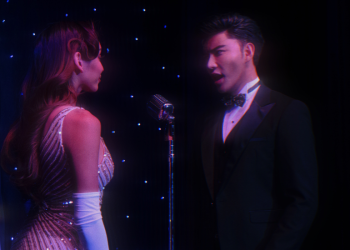“Serenade” is somewhere in between, a violin concerto that Bernstein, late in the writing process, dressed up with a philosophical title whose connection to the score is tenuous at best. Yoo, to her credit, leaned into the music as abstract rather than programmatic, neither too ruminative nor romantic. And, on the way out, she let the audience know that she is just as comfortable with a flamboyant encore, playing Vieuxtemps’s “Souvenir d’Amérique,” a series of virtuosic and entertaining variations on “Yankee Doodle.”
In both the Rachmaninoff and the Bernstein, Rouvali kept the Philharmonic at a supportive, even deferential reserve, to the point of occasional blandness. He is a conductor, though, who shines in a symphony, where his approach to the podium has the most room to breathe.
And over his two weeks with the orchestra, he had plenty of time to show off his style, following the “Serenade” with Strauss’s “An Alpine Symphony” and, last night, opening with Farrenc’s “Overture No. 2” and finishing with Dvorak’s Seventh Symphony.
Rouvali can be uneven — to a degree that either frustrates or fascinates, depending on your appetite for unpredictability — but he is rarely mannered and often surprising, with an element of danger that, when it pays off, makes for a thrilling experience. You get the impression that players really have to pay attention to his baton, with its swerves into rubato that just as quickly settle back into the written tempos and rhythms; as a result, he draws livelier performances than you hear during a routine week at the Philharmonic.
Livelier, but also sometimes more chaotic, as in the account of “An Alpine Symphony.” This is a work that fills the stage at Geffen Hall to capacity with its immensity, and that scale proved difficult to wrangle, with unreliable balance that exacerbated Strauss’s relentless extravagance, resulting in a musical excursion more exhausting than awe-inspiring.

























